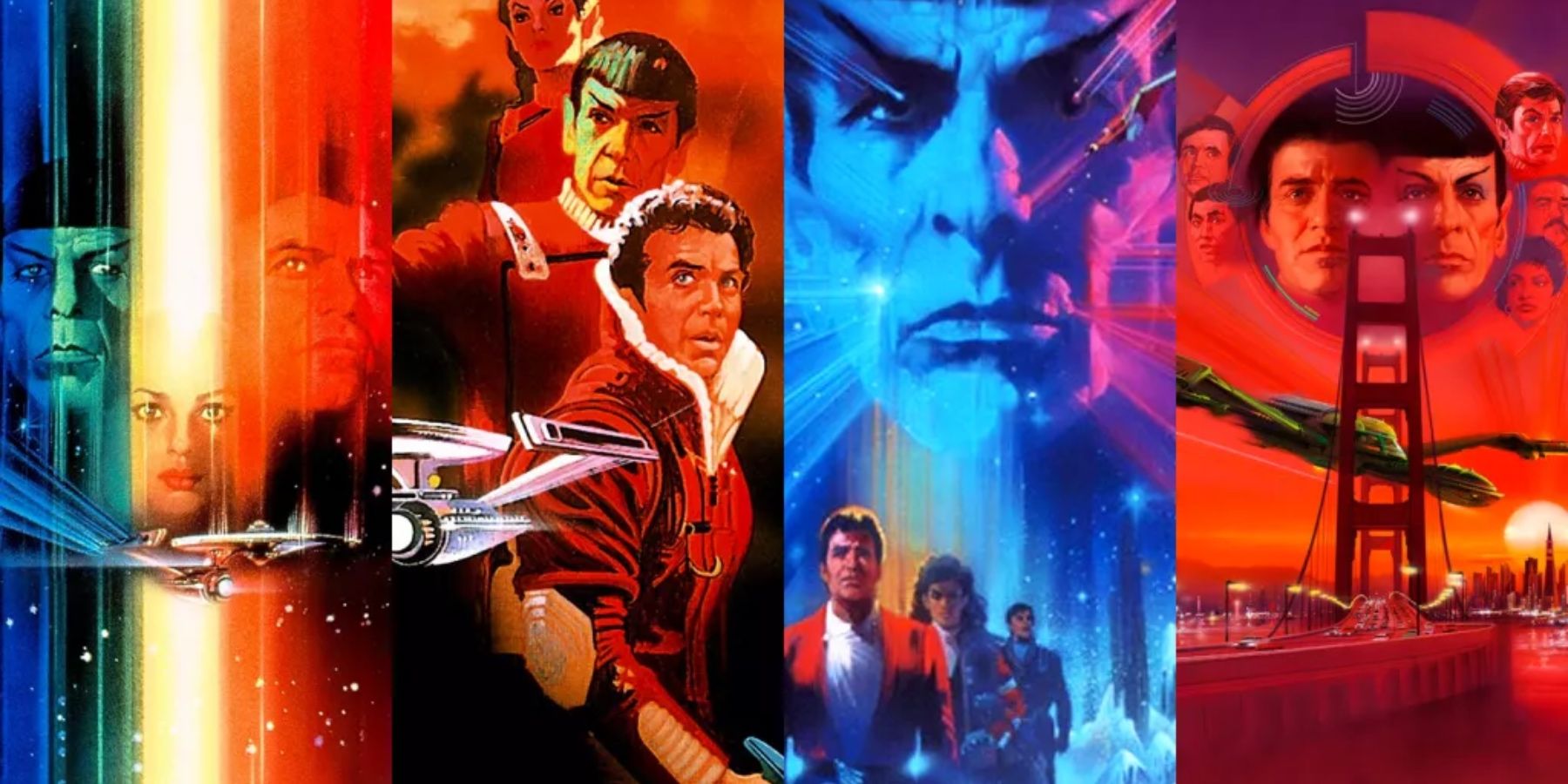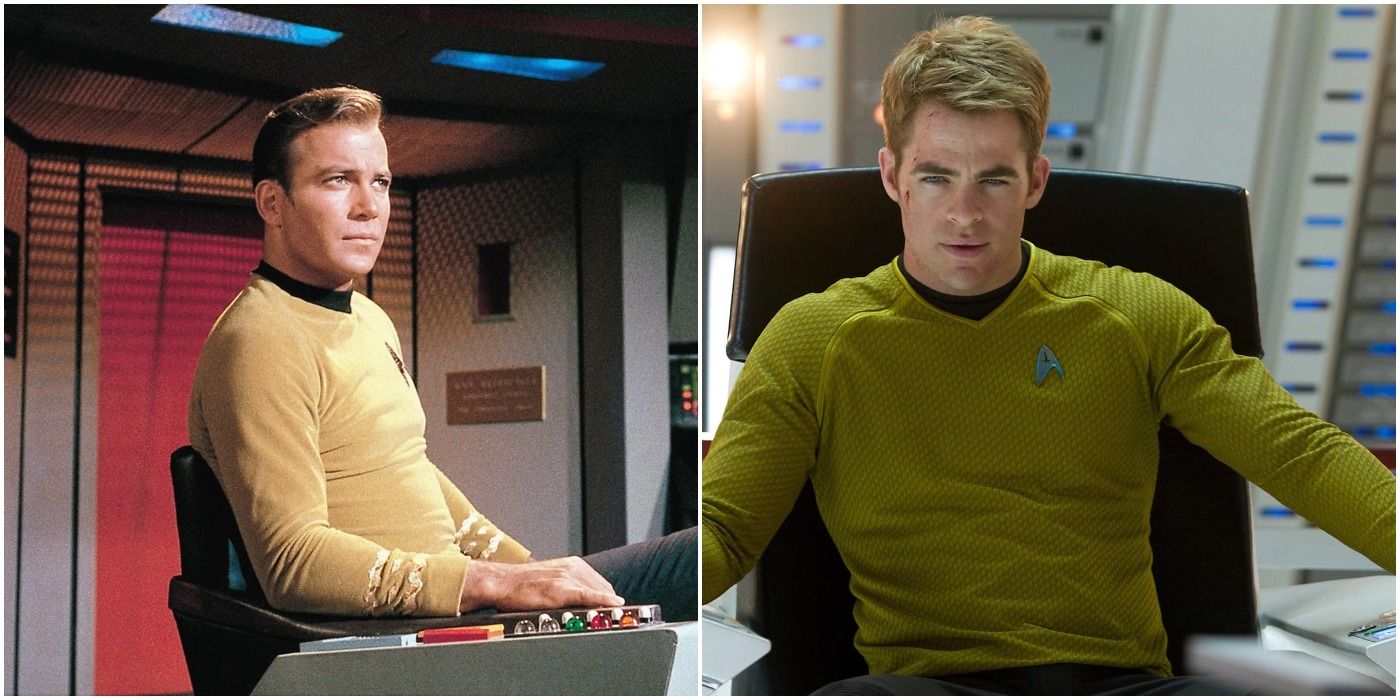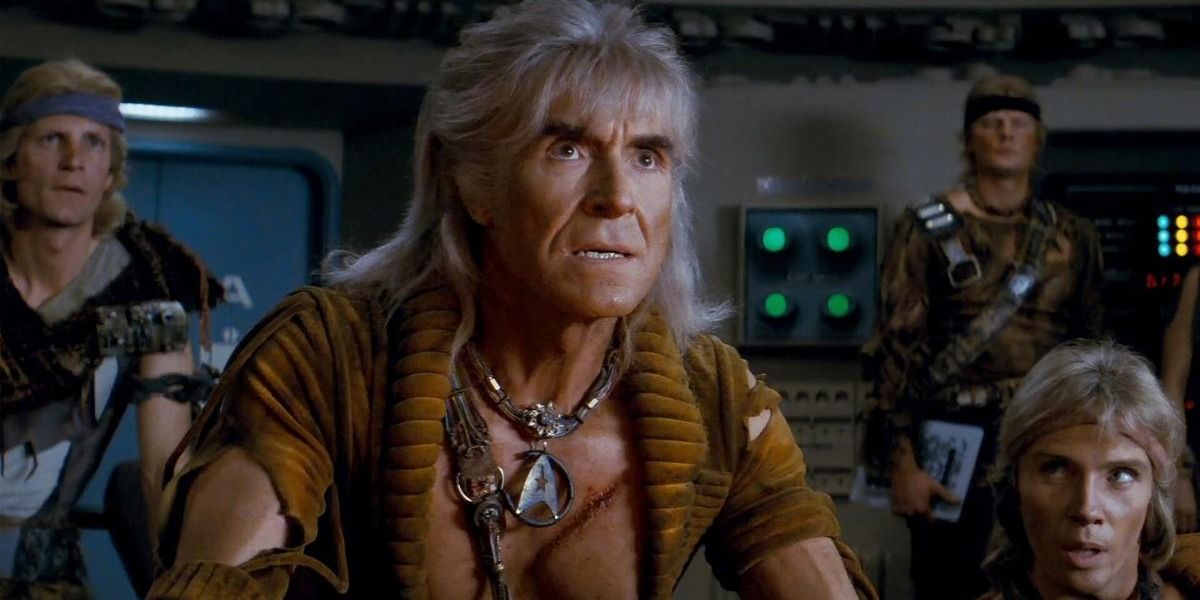Ever since the late 1960s, Star Trek has been a household name as one of the biggest founding fathers for modern day science fiction, and has continued on to produce a multitude of fantastic TV shows, comic books, novels, video games, and of course movies. At the time of writing, there have been 13 movies, dating back from 1979 all the way to 2016. While potentially less complex than traversing larger universes such as the MCU, it can still seem daunting, so what is the best order to watch them in?
Before delving into the three best ways to watch these movies, it’s important to note that these films work best when viewing is partnered with watching the plethora of TV shows. In most cases, it’s possible to enjoy and follow the films without watching the shows, but the television content offers amazing insight, history, and context to a lot of the characters and plot that an audience just wouldn’t get without seeing them. It’s fairly similar to watching, for example, the new Doctor Strange film without watching Wandervision — totally possible, but the best viewing experience is gained from having seen both. Without future ado, it’s time to explore arguably the three best ways in which to watch the Star Trek films.
The Production Order
This is the order in which most Star Trek fans will have watched the movies, following the order in which they were released. The order is as follows:
- 1979 - Star Trek: The Motion Picture
- 1982 - Star Trek II: The Wrath of Khan
- 1984 - Star Trek III: The Search for Spock
- 1986 - Star Trek IV: The Voyage Home
- 1989 - Star Trek V: The Final Frontier
- 1991 - Star Trek VI: The Undiscovered Country
- 1994 - Star Trek: Generations
- 1996 - Star Trek: First Contact
- 1998 - Star Trek: Insurrection
- 2002 - Star Trek: Nemesis
- 2009 - Star Trek
- 2013 - Star Trek: Into Darkness
- 2016 - Star Trek: Beyond
It makes sense for a lot of the Kirk films to be viewed one after the other. Each one is its own fantastic iteration into the universe, and each, some with more subtlety than others, leads chronologically into one another. The transition into Picard’s Star Trek is also fairly fluid, with Star Trek: Generations featuring the two captains together, almost representing the passing of the baton from Kirk to Picard. The three following films, First Contact, Insurrection, and Nemesis are all Picard, so it makes sense to watch them in this order.
There then follows the rebooted timeline, or “Kelvin Timeline,” order, which includes all the modern films featuring Chris Pine’s Captain Kirk. These films were met with mixed reception, partly due to their drastic changes in tone from the original movies and shows, and creating their own parallel universe. One benefit of watching the movies in production order like this is that it allows for them to easily be stricken off the watch order, ending on a high note with the fantastic film Nemesis (which also includes another marvelous performance by Tom Hardy).
By Captain
Another popular way to watch the movies is to break the films into groupings according to their captains, which works especially well if audiences are watching the movies alongside their corresponding TV shows. This order works best if the viewer is up to date with Star Trek: Discovery, as it helps directly compare and move between the two distinct timelines portrayed between the two Kirks (Shatner and Pine). The order for the Kirks is as follows:
- 2009 - Star Trek
- 2013 - Star Trek: Into Darkness
- 2016 - Star Trek: Beyond
- 1979 - Star Trek: The Motion Picture
- 1982 - Star Trek II: The Wrath of Khan
- 1984 - Star Trek III: The Search for Spock
- 1986 - Star Trek IV: The Voyage Home
- 1989 - Star Trek V: The Final Frontier
- 1991 - Star Trek VI: The Undiscovered Country
This order shows multiple angles and readings of the beloved Starfleet captain, as well as offering audiences more direct context for the idea of parallel universes explored within Discovery. This list starts with the newer Kelvin Timeline films, as this not only adds parallel universe interagency to those interested in Discovery, but also provides audiences with a much more in-depth origin story to Kirk, something that is missing from the majority of the rather political Original Series movies. Watching these three films first also helps with the original films that follow, making these shine all the more when compared with the multitude of problems the newer films have.
After the Kirk films, the Picard era films then follow:
- 1994 - Star Trek: Generations
- 1996 - Star Trek: First Contact
- 1998 - Star Trek: Insurrection
- 2002 - Star Trek: Nemesis
Again, with Generations, there is the link between Kirk and Picard shown, a seamless baton pass between the two captains that flows so well into the Picard era movies. These films are great to watch if audiences are watching Next Generation, Voyager, and DS9 alongside the films, then followed by Picard.
Abridged
This is a much shorter list for this who only want to watch the very best each era of Star Trek has to offer:
- 1982 - Star Trek II: The Wrath of Khan
- 1996 - Star Trek: First Contact
- 2009 - Star Trek
Of these three, The Wrath of Khan is by far the best Star Trek film ever made. Many fans agree that if someone is going to watch just one film from this wonderful universe, this is top choice. It has its story origins in classic literature, masterfully paralleling Moby Dick into a wild space faring adventure, and contains some of the best acting that the cast of the Original Series ever produced. The film is filled with tension and meticulous patient storytelling, portraying a desperate and deeply personal fight for justice and what they believe in.
First Contact is also a great film, the height of the Picard era, and a wonderful treasure in genre bending Star Trek storytelling. Directed by Jonathan Frakes (the one and only Commander Riker) the film straddles the line between science fiction and horror, a darker and more gritting story which gives narrative to the start of the entire federation: first contact. 2009's Star Trek, while not particularly a great film, is great when looking at it as the relatively untold origin story for the beloved characters of Kirk and Spock. While they may not be the versions that most audiences know and love from the prime timeline, the film gives much-needed gravitas and importance to the other crew members of the USS Enterprise, as well as managing to keep the essence of adventure that the Original Series pioneered all those years ago.



